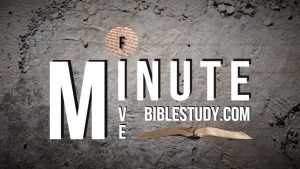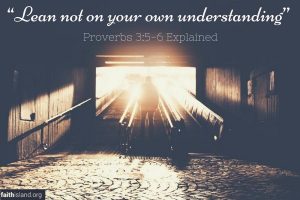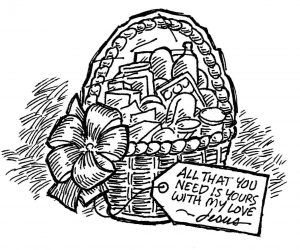Welcome to Day 1484 of our Wisdom-Trek, and thank you for joining me.
This is Guthrie Chamberlain, Your Guide to Wisdom
Bible Study – Five Minutes and A Sermon – Meditation Monday
Wisdom – the final frontier to true knowledge. Welcome to Wisdom-Trek! Where our mission is to create a legacy of wisdom, to seek out discernment and insights, to boldly grow where few have chosen to grow before. Hello, my friend, I am Guthrie Chamberlain, your captain on our journey to increase Wisdom and Create a Living Legacy. Thank you for joining us today as we explore wisdom on our 2nd millennium of podcasts. This is Day 1484 of our Trek, and it is time for Meditation Monday. Taking time to relax, refocus, and reprioritize our lives is crucial in order to create a living legacy. For you, it may just be time alone for quiet reflection. You may utilize structured meditation practices. In my life, Meditation includes reading and reflecting on God’s Word and in prayer. It is a time to renew my mind, refocus on what is most important, and making sure that I am nurturing my soul, mind, and body. As you come along with me on our trek each Meditation Monday, it is my hope and prayer that you, too, will experience a time for reflection and renewing of your mind.
We are continuing our series this week on Meditation Monday as we focus on Mastering Bible Study through a series of brief insights from Hebrew Scholar, Dr. Michael S. Heiser. Our current insights are focusing on study habits to build a strong foundation. Today let us meditate on:
Bible Study – Five Minutes and A Sermon
· Insight Twenty-Three: Five Minutes Is A Long Time

Let’s start this segment with another story from Dr. Heiser that focuses on how important it is to invest in each moment we have. Here is his story: Growing up, no one taught me the Bible. My first exposure to the Bible that I can remember happened when I was about ten years old. My best friend’s mom had a devotional time with her kids. If I was there, I was invited to stay. I was amazed that kids my age and younger knew the names of Bible characters and stories. About all I knew was Adam, Eve, and Jesus (at least the names).
There were times I’d sit in that little Bible study feeling like the dumbest person in the room. I guess I was when it came to the Bible. I wanted to know more, but it felt like an impossible task. Today, I’m a Bible scholar with advanced degrees who studies Scripture in the original languages. I’m light-years from where I started.
Trust me; it didn’t happen overnight. What I know now is the cumulative result of thousands of incremental sessions of studying Scripture and hundreds of resources related to it. It had to be that way, since I worked full time through fifteen years of graduate school, and most of my time in college before that.

One of the most helpful things I’ve ever heard was something a professor told us during freshman orientation at college. One of our orientation sessions was about time management. The professor looked out over the auditorium and then changed my life when she said five minutes is a long time. If you’ve ever had to wait five minutes for something (a favorite show, an appointment, the bathroom!), you know it’s true.
I took her advice to heart. If I had five minutes to read or review something, I took it. It’s incredible how much data can pile up in your brain in small bits. I got through college and graduate school and did well. I still can’t stand to be idle. I’m always trying to learn about something.
I understand what it means to be pressed for time. Making time for Bible study is a legitimate challenge, especially if you’re an adult with a job, kids, and a string of responsibilities. If you only have five minutes for careful Bible study, take it. It will add up. I’m living proof that it works.
· Insight Twenty-Four: Listening to a Sermon Is Not Bible Study

It seems like one of the rituals in church life is complaining about sermons. I sort of feel sorry for the pastor! It isn’t an easy task to capture people’s attention with the Bible. To many people in church, it’s a foreign book that they don’t believe they can understand. Others think they’ve heard everything already, so their minds are prone to wander.
Since you’re listening to this podcast or reading the journal notes, it’s a sure bet the above doesn’t describe you. You want to learn Scripture and don’t think you’ve absorbed all that there is to see in Scripture. You come to church expecting to learn something. That’s all very good. I don’t want to see you fall into the trap (or pattern) of substituting the Sunday sermon for Bible study.
If you’re the kind of person that takes notes during a sermon, you may wonder about where I’m going here. I’m primarily talking about the person who doesn’t take notes, a completely passive listener. I’ve known many people that, when asked if they study the Bible, think that’s what they’re doing when they talk about the sermon in a small group. That isn’t Bible study. It’s sharing opinions about what someone else thinks about a Bible passage. Bible study isn’t an opinion survey.
If you take notes during a sermon, you’ve already moved beyond the passive act of listening. Taking notes during sermons can convert sermon time into Bible study time. I recommend it as a starting point for Bible study. I’ve known some people that say it’s a sin because “sermons are spiritual exhortations, not lectures.” A pious false dichotomy is still a false dichotomy. Shutting off your brain in church isn’t a virtue.
Taking notes during sermons can prepare you for Bible study. If you happen to be working through the same passage in your Bible study, you can look up cross-references while you listen or jot down questions the sermon raises in your mind. Even if you aren’t in that passage, if you take careful notes, you’ll be able to pick up your thoughts in the future when you study that passage. You’re way ahead of the curve if your notes are digital; those things are searchable!
So go ahead—make the sermon a time to sharpen some Bible study skills. God won’t mind.
Study this Book of Instruction continually. Meditate on it day and night so you will be sure to obey everything written in it. Only then will you prosper and succeed in all you do.
That is a wrap for today’s Meditation. Next week we will continue our trek on Meditation Monday as we take time to reflect on what is most important in creating our living legacy. On tomorrow’s trek, we will explore another wisdom quote. This 3-minute wisdom supplement will assist you in becoming healthy, wealthy, and wise each day. Thank you for joining me on this trek called life. Encourage your friends and family to join us and then come along tomorrow for another day of ‘Wisdom-Trek, Creating a Legacy.’  If you would like to listen to any of the past 1483 daily treks or read the daily Journal, they are available at Wisdom-Trek.com. I encourage you to subscribe to Wisdom-Trek on your favorite podcast player so that each day will be downloaded to you automatically.
If you would like to listen to any of the past 1483 daily treks or read the daily Journal, they are available at Wisdom-Trek.com. I encourage you to subscribe to Wisdom-Trek on your favorite podcast player so that each day will be downloaded to you automatically.
Thank you for allowing me to be your guide, mentor, and most importantly, I am your friend as I serve you through this Wisdom-Trek podcast and Journal.
As we take this Trek of life together, let us always:
- Live Abundantly (Fully)
- Love Unconditionally
- Listen Intentionally
- Learn Continuously
- Lend to others Generously
- Lead with Integrity
- Leave a Living Legacy Each Day
I am Guthrie Chamberlain….reminding you to ’Keep Moving Forward,’ ‘Enjoy your Journey,’ and ‘Create a Great Day…Everyday’! See you tomorrow!

 The interfaces are nearly plug-and-play simple—meaning if you can learn to use Facebook, you can probably learn how to 3D print. What we can now print is astounding. From jet engines to apartment complexes to circuit boards to prosthetic limbs, 3D printers can fabricate enormously complex devices in ever-shorter timeframes.
The interfaces are nearly plug-and-play simple—meaning if you can learn to use Facebook, you can probably learn how to 3D print. What we can now print is astounding. From jet engines to apartment complexes to circuit boards to prosthetic limbs, 3D printers can fabricate enormously complex devices in ever-shorter timeframes. The next step is replacement body parts are about to become replacement organs. In 2002, scientists at Wake Forest University 3D-printed the first kidney capable of filtering blood and producing urine. In 2010, Organovo, a San Diego-based bioprinting outfit, created the first blood vessel. Now in 2020, a San Francisco-based 3D tissue printing company Prellis Biologics is achieving record speeds in its pursuit of printed human tissue with viable capillaries. In success, these 3-D manufacturing breakthroughs could forever end our shortage of donor organs.
The next step is replacement body parts are about to become replacement organs. In 2002, scientists at Wake Forest University 3D-printed the first kidney capable of filtering blood and producing urine. In 2010, Organovo, a San Diego-based bioprinting outfit, created the first blood vessel. Now in 2020, a San Francisco-based 3D tissue printing company Prellis Biologics is achieving record speeds in its pursuit of printed human tissue with viable capillaries. In success, these 3-D manufacturing breakthroughs could forever end our shortage of donor organs.
 If you would like to listen to any of the past 1482 daily treks or read the associated journals, they are available at Wisdom-Trek.com. I encourage you to subscribe to Wisdom-Trek on your favorite podcast player so that each day will be downloaded to you automatically.
If you would like to listen to any of the past 1482 daily treks or read the associated journals, they are available at Wisdom-Trek.com. I encourage you to subscribe to Wisdom-Trek on your favorite podcast player so that each day will be downloaded to you automatically.





 If you would like to listen to any of our past 1480 treks or read the Wisdom Journal, they are available at Wisdom-Trek.com. I encourage you to subscribe to Wisdom-Trek on your favorite podcast player so that each day’s trek will be downloaded automatically.
If you would like to listen to any of our past 1480 treks or read the Wisdom Journal, they are available at Wisdom-Trek.com. I encourage you to subscribe to Wisdom-Trek on your favorite podcast player so that each day’s trek will be downloaded automatically. It is so easy to make excuses for actions not taken, or decisions not made. It is easy to make excuses or blame someone else for failures in our lives. In most cases though, our excuses are quite pathetic and flimsy. In many cases, excuses are made for not completing something we can achieve; therefore, we are not fulfilling our God-given abilities. Achievement is especially true of God’s precepts for living. These precepts are already written in God’s Word. My next statement may sound controversial at first, but it is Biblically based. There are many situations or circumstances in life that you don’t need to pray about. Most guidelines for living for God are already told to us in the pages of His Word. God has already given us everything we need to live a Godly life. You don’t have to pray about them. That being said, ask yourself, why am I making excuses? If God commands us, he also equips us. Free yourself and your mindset from making excuses. Instead, speak words of affirmation which are based on God’s Word. Based on the wisdom and truths available to us, I have something to tell you. Are you listening? Will you believe it when I tell you? Here is the secret: You Can Do It!
It is so easy to make excuses for actions not taken, or decisions not made. It is easy to make excuses or blame someone else for failures in our lives. In most cases though, our excuses are quite pathetic and flimsy. In many cases, excuses are made for not completing something we can achieve; therefore, we are not fulfilling our God-given abilities. Achievement is especially true of God’s precepts for living. These precepts are already written in God’s Word. My next statement may sound controversial at first, but it is Biblically based. There are many situations or circumstances in life that you don’t need to pray about. Most guidelines for living for God are already told to us in the pages of His Word. God has already given us everything we need to live a Godly life. You don’t have to pray about them. That being said, ask yourself, why am I making excuses? If God commands us, he also equips us. Free yourself and your mindset from making excuses. Instead, speak words of affirmation which are based on God’s Word. Based on the wisdom and truths available to us, I have something to tell you. Are you listening? Will you believe it when I tell you? Here is the secret: You Can Do It!
 If you would like to listen to any of our past 1479 treks or read the Wisdom Journal, they are available at Wisdom-Trek.com. I encourage you to subscribe to Wisdom-Trek on your favorite podcast player so that each day’s trek will be downloaded automatically.
If you would like to listen to any of our past 1479 treks or read the Wisdom Journal, they are available at Wisdom-Trek.com. I encourage you to subscribe to Wisdom-Trek on your favorite podcast player so that each day’s trek will be downloaded automatically.